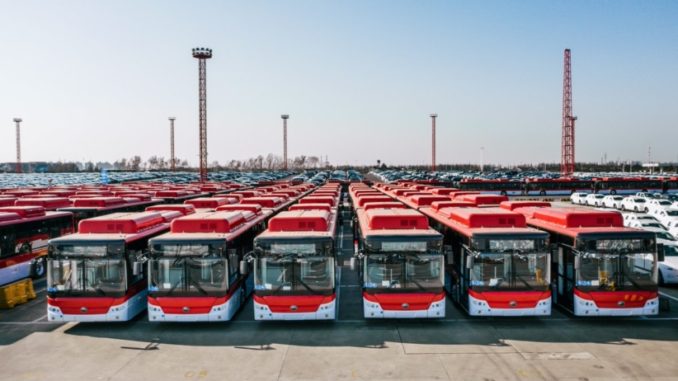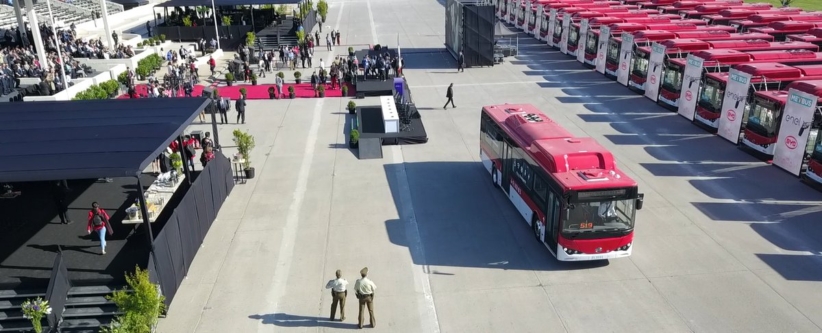
SANTIAGO –A second batch of 100 Chinese-built electric buses joined the public transit fleet serving Santiago de Chile over the weekend.
The Minister of Transport and Telecommunications, Gloria Hutt, together with the Undersecretary of Transport, Jose Luis Domínguez, and the DTPM director, Fernando Saka, were in charge of receiving the vehicles that, thanks to a public-private collaboration with the companies Gildemeister, Engie, STP and Vule, will allow to improve the quality of service in Chilean capital.
Ministra @GloriaHutt presentó otros 100 buses eléctricos para la capital: “estos buses cuentan con todos los atributos tan valorados por los usuarios. Aire acondicionado, wifi y asientos cómodos. Muy pronto podrán disfrutar de ellos en Maipú y Puente Alto”#MejorTransporte ?❤️ pic.twitter.com/GTGFItxlPy
— Ministerio de Transportes y Telecomunicaciones (@MTTChile) January 19, 2019
Starting in March, vehicles will begin to operate services that connect Maipú and Bajos de Mena with the city center, which will raise the standard of travel comfort for thousands of users in remote communes.
The buses made by Chinese vehicle maker Yutong will serve alongside the first batch of 100 buses already in circulation.
“Talking about electric public transportation sounded futuristic a few years ago, but today it is a reality that circulates in our streets every day,” Hutt told reporters gathered for the presentation.
The new units rank Chile in first place as the Latin American country with the biggest electric public transit fleet, and in second place globally.
Chile drives into the future with largest electric bus fleet in Latin America
The air-conditioned buses are 100 percent electric and have other modern features, including on-board Wi-Fi connection and seats equipped with USB ports for charging mobiles and other hand-held devices.
They are quiet to operate, helping combat noise pollution, and cut operating costs by nearly 80 percent compared to the current diesel-powered buses serving the capital, the minister said.
Able to reach speeds of up to 85 km per hour and run for up to 300 km on a single charge, the buses are set to serve commuters shuttling between the country’s two most heavily populated urban districts, Maipu and Puente Alto, surrounding the capital.

“We are fully in the process of technological updating. Just as we have gasoline stations, we will also now have the latest electric charging stations, which will place us at the cutting edge of this field,” said Luis Barahona, general manager of STP Santiago, one of the companies which are to operate the buses.
During the ceremony, Yutong’s vice president, Kent Chang, presented Hutt with a traditional Chinese decorative tassel, a symbol of friendship and good fortune.
The Minister of Transport and Telecommunications, Gloria Hutt toured the brand new Yutong E12 fully electric buses that were delivered to Chile. The Minister praised the environmentally friendly buses. @GloriaHutt ??❤️ pic.twitter.com/vVuZUbIELL
— Yutong Bus & Coach (@YutongGlobal) January 22, 2019
The vehicles were shipped from Yutong’s plant in Zhengzhou in central China, and spent nearly two months in transit.
On Dec. 13, President Sebastián Piñera unveiled the first 100 electric buses for Santiago’s transit fleet, which were made by Chinese electric vehicle maker BYD. Two days later, the first 26 buses went into circulation.
According to Hutt, the buses have been “well received” and have been “operating well.”
Incorporating the electric buses is part of “Third Millennium Transport,” an ambitious program to upgrade public transit in the capital and other major cities and promote sustainability in Chile.



